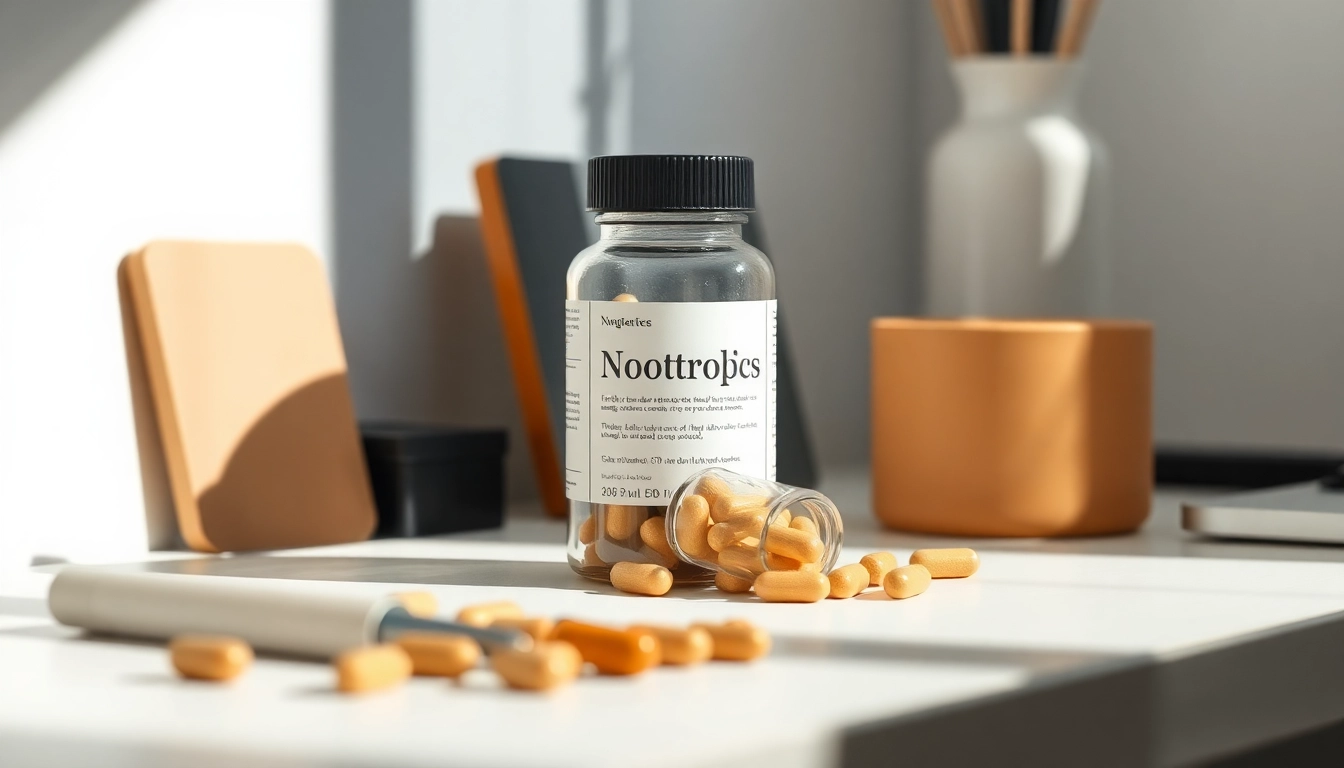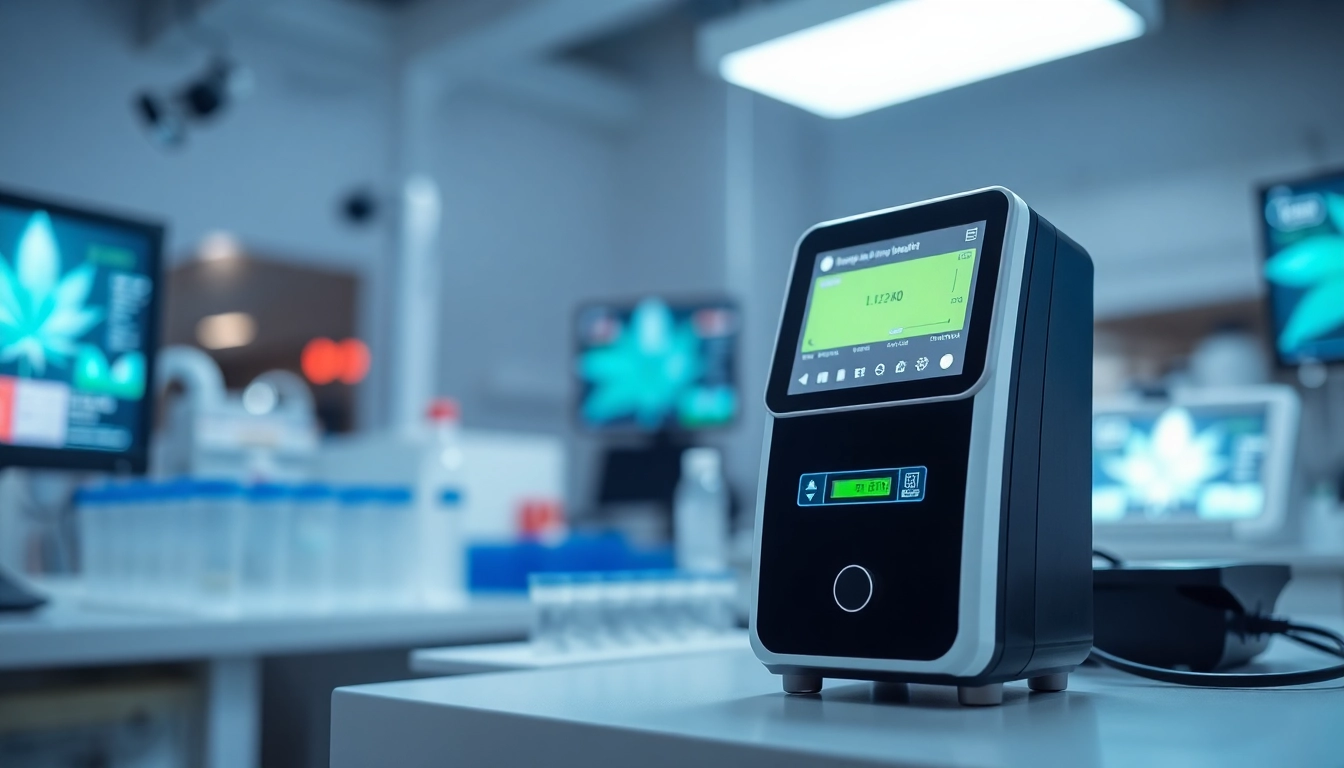Understanding Nootropics: What They Are and How They Work
Definition and Origin of Nootropics
Nootropics, often referred to as “smart drugs,” are substances that may enhance cognitive function, particularly executive functions, memory, creativity, or motivation, in healthy individuals. The term was first coined in 1972 by Romanian psychologist and chemist Corneliu E. Giurgea, who synthesized the first nootropic, Piracetam. Giurgea observed that nootropics must meet several criteria, including improving memory, enhancing learning, and preventing cognitive decline. This exploration of brain enhancers has evolved significantly since then, with both natural and synthetic compounds being developed to suit various cognitive enhancement needs.
Mechanism of Action: How Nootropics Affect the Brain
Nootropics operate through various mechanisms to enhance brain function. They may increase blood flow to the brain, promote neurogenesis (the growth of new neurons), modulate neurotransmitter levels, and protect against cognitive decline by combating oxidative stress. For instance, some nootropics, like racetams, are believed to improve the brain’s acetylcholine signaling, while others, such as L-theanine, can enhance dopamine and serotonin levels, contributing to mood regulation and cognitive clarity. Understanding the specific mechanisms can help individuals choose the right nootropics for their needs.
Benefits of Using Nootropics for Mental Performance
The potential benefits of nootropics are extensive. Many individuals report enhanced cognitive functions such as improved memory recall, increased focus and concentration, better problem-solving abilities, and heightened creativity. Additionally, certain nootropics may offer relief from anxiety and stress, factors that can hinder cognitive performance. Nootropics can help cultivate a state of mental clarity that is conducive to work, study, or creative tasks, making them appealing for students, professionals, and creatives alike. However, the efficacy can vary widely among individuals, emphasizing the need for a tailored approach when integrating these substances into one’s routine.
Types of Nootropics: From Natural to Synthetic
Natural Nootropics: Herbs and Supplements
Natural nootropics consist of various herbs, vitamins, and dietary supplements that have been used for centuries to boost brain power and cognitive function. Common examples include:
- Ginkgo Biloba: This ancient herb is thought to improve blood circulation to the brain and enhance memory and cognitive function.
- Bacopa Monnieri: Traditionally used in Ayurvedic medicine, Bacopa is reputed for its ability to improve memory and cognitive processing.
- Rhodiola Rosea: Known for its adaptogenic properties, Rhodiola can help combat fatigue and enhance mental performance under stress.
- Panax Ginseng: Often referred to as the “king of herbs,” Ginseng is believed to provide a boost in energy levels and improve cognitive performance.
These natural substances not only provide cognitive benefits but often come with a range of health advantages, making them a popular choice among users seeking a holistic approach to brain enhancement.
Synthetic Nootropics: Prescription and Non-Prescription Options
Synthetic nootropics, on the other hand, are man-made compounds that often act more powerfully than their natural counterparts. Examples include:
- Modafinil: Originally developed to treat narcolepsy, Modafinil is known for its wakefulness-promoting properties and has gained popularity as a cognitive enhancer among professionals.
- Adderall: A prescription medication primarily used to treat ADHD, Adderall can significantly enhance focus and concentration.
- Racetams: This class of synthetic nootropics, including Piracetam and Aniracetam, is known for enhancing cognitive functioning and memory.
While these drugs can offer significant cognitive benefits, they often come with potential risks and side effects, making it paramount to consult a healthcare professional before use.
Comparing Efficacy: Natural vs. Synthetic Nootropics
The debate between natural and synthetic nootropics hinges on efficacy, safety, and individual preferences. Natural nootropics often have a milder effect, making them suitable for those who prefer subtle enhancements or are sensitive to the stronger effects of synthetic compounds. They may also come with fewer side effects, but it often takes longer to see results.
On the other hand, synthetic nootropics typically provide faster and more pronounced effects. However, they can also come with a greater risk of dependence and side effects. Users should consider their personal goals and health when choosing between natural and synthetic options, as well as potential interactions with other medications or conditions.
Choosing the Right Nootropics for Your Needs
Identifying Personal Goals and Requirements
Before diving into the world of nootropics, it’s essential to identify what cognitive enhancements you seek. Do you want better focus for work tasks, improved memory for studying, or increased creativity for artistic projects? Understanding your specific needs will guide your selection of nootropics. Furthermore, lifestyle factors such as diet, sleep quality, and stress management also play significant roles in cognitive performance, and nootropics should complement these aspects rather than replace them.
Dosage Recommendations for Common Nootropics
Though individual responses can vary greatly, here are some general dosage recommendations for common nootropics:
- Creatine: 3-5 grams per day.
- Bacopa Monnieri: 300-600 mg per day.
- Rhodiola Rosea: 200-600 mg per day.
- Modafinil: Typically 100-200 mg per day (prescription required).
It is advisable to start with the low end of dosing to assess individual tolerance before making adjustments. Consulting a healthcare provider prior to starting any nootropic regimen is recommended, especially for synthetic options due to their potency and potential side effects.
Possible Side Effects and Precautions
While many nootropics are considered safe, they are not without potential side effects. Common side effects can include headaches, digestive issues, and insomnia, particularly with higher dosages or depending on the specific compound used. Synthetic nootropics may elicit more severe reactions, and their long-term impact on the brain and body is still a topic of ongoing research.
It’s paramount to read up on each nootropic’s profile, consult a healthcare professional, and consider factors like existing health conditions and medications. Gradual introduction and maintaining a balanced lifestyle can mitigate many risks associated with nootropic use.
Incorporating Nootropics into Your Daily Routine
Best Practices for Consuming Nootropics
When integrating nootropics into your daily routine, consider timing, consistency, and delivery methods. Some users prefer taking nootropics with food to aid absorption, while others may find that taking them on an empty stomach enhances their effects. Establishing a consistent routine will also help in tracking the longitudinal effects on cognitive performance. Additionally, keeping a journal of effects and experiences can assist in refining your approach over time.
Combining Nootropics with a Healthy Lifestyle
Nootropics should complement a healthy lifestyle rather than serve as a quick fix. Adopting good sleep hygiene, engaging in regular physical activity, and maintaining a balanced, nutrient-rich diet are all crucial components that enhance cognitive function. The synergistic effects of nootropics combined with these healthy habits can lead to more sustained cognitive benefits and overall well-being. It’s essential to remember that while nootropics can provide a boost, they work best in conjunction with a solid foundation of health-promoting behaviors.
Tracking Progress: Measuring Cognitive Improvement
To assess the impact of nootropics, self-assessment tools such as cognitive tests, mood journals, or productivity logs can be beneficial. Tracking changes in focus, memory retention, creativity, or problem-solving capabilities will help determine the effectiveness of your chosen nootropics. Additionally, consider using technology like cognitive training apps that can quantify improvements over time. Being systematic and reflective regarding your usage will aid significantly in optimizing your nootropic experience.
Future Trends in Nootropics and Cognitive Enhancement
Emerging Research on New Nootropic Compounds
The field of nootropics is rapidly evolving, with ongoing research focusing on discovering new compounds and their potential applications. Recent studies have highlighted various botanical extracts and synthesized compounds exhibiting promising cognitive enhancement properties. Emerging trends point towards personalized nootropics tailored to individual genetic profiles, suggesting a future where cognitive enhancement could be optimized for individual needs and responses. For example, research on compounds like Lion’s Mane mushroom indicates potential neuroprotective and memory-enhancing effects, warranting further exploration.
The Role of Nootropics in Mental Health
As mental health awareness increases, the intersection between nootropics and mental health has become an appealing research area. Some nootropics are being investigated for their potential roles in treating conditions such as ADHD, anxiety, and depression. For example, herbal nootropics like Ashwagandha are showing promise in reducing anxiety, while synthetic options may help manage attention deficits. Thus, a greater understanding of how nootropics can be integrated into mental health treatment regimens is vital, with a careful approach to address safety and efficacy concerns.
Ethical Considerations in Nootropic Usage
With great power comes great responsibility, and the use of nootropics is no different. Ethical considerations surrounding their use, particularly in academic and professional settings, are becoming increasingly discussed. Questions regarding fairness, the potential for dependency, and long-term health impacts are essential considerations in determining appropriate use. For instance, the rise of nootropic use among students to gain competitive advantages raises concerns about equity and integrity in academic performance. Thus, fostering a well-informed and ethical approach toward cognitive enhancement is essential for societal well-being.



